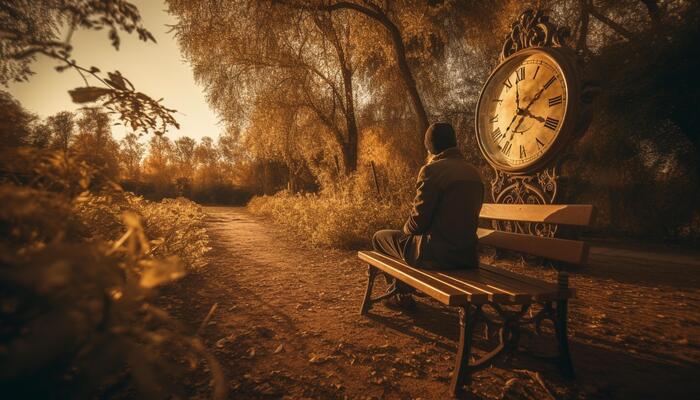- There was a time when waiting was a natural part of life—an accepted, even sacred pause between moments.
- But something changed. Somewhere between high-speed internet, instant replies, and the addictive glow of our screens, we stopped knowing how to wait.
There was a time when waiting was a natural part of life—an accepted, even sacred pause between moments. You waited for the matatu at the stage gazing at people walking by or taking note of the environment surrounding you like the falling petals from a jacaranda tree or birds perched on it chirping peacefully.
You waited for your mother to finish cooking, the aroma of garlic and oil filling the kitchen like a promise. You waited for the rains to come, staring at the sky until it darkened, your hope rising with each gust of wind.
But something changed. Somewhere between high-speed internet, instant replies, and the addictive glow of our screens, we stopped knowing how to wait. We grew impatient with silence, intolerant of slowness. A five-minute delay now feels like a personal insult.
A buffering video can ruin our mood. In line at the bank, at the bus stop, or even while water boils, we reach reflexively for our phones—scrolling through news, texts, videos, anything to distract us from the discomfort of stillness.
Yet there is something profoundly human about waiting. It once was, and still can be, a space that reveals the shape of our inner lives. In the quiet of waiting, imagination used to wander. Children would lie on their backs and watch clouds shift into shapes—elephants, ships, lost countries.
Read More
Old men on benches would gaze into the distance, not searching for anything, just remembering. Women would shell peas by hand in companionable silence, the rhythm of waiting woven into the rhythm of daily life.
Waiting is also where some of the most intimate thoughts live. Think of the weight of waiting for exam results. Or the ache of waiting for someone to return a call that may never come. The quiet heartbreak of waiting in a hospital corridor.
The tension of waiting for a child to be born. The uncertainty of waiting for peace after conflict. These moments, slow and unwelcome as they might feel, shape the very texture of who we are. They demand trust—in time, in others, in something bigger than ourselves.
Even joy has its roots in waiting. The swelling excitement before a long-awaited journey. The scent of mandazi rising from the kitchen as a celebration simmers in the next room. The last day of school before holidays. These are not just gaps in time. They are seasons of becoming.
In our rush to fill every silence, to shorten every queue, we risk erasing something ancient and essential. When we remove the wait, we remove the wonder that comes with it. We stop listening to ourselves. We stop noticing each other.
Maybe it’s time we reclaimed the art of waiting—not as a burden, but as a gentle rebellion against a world obsessed with speed. What if we resisted the urge to scroll at the bus stop and instead noticed the woman beside us balancing three shopping bags and a baby?
What if we let the silence stretch at the dinner table, long enough for someone to finally say what’s been sitting in their chest all day?
There is still wisdom in waiting. Not everything needs to arrive now. Not every question needs an instant answer. In the stillness, something grows—patience, awareness, memory, even grace.
Sometimes, the most profound parts of life don’t happen in the rush. They happen in the wait.




-1770306232-md.jpg)




-1770306232-sm.jpg)
